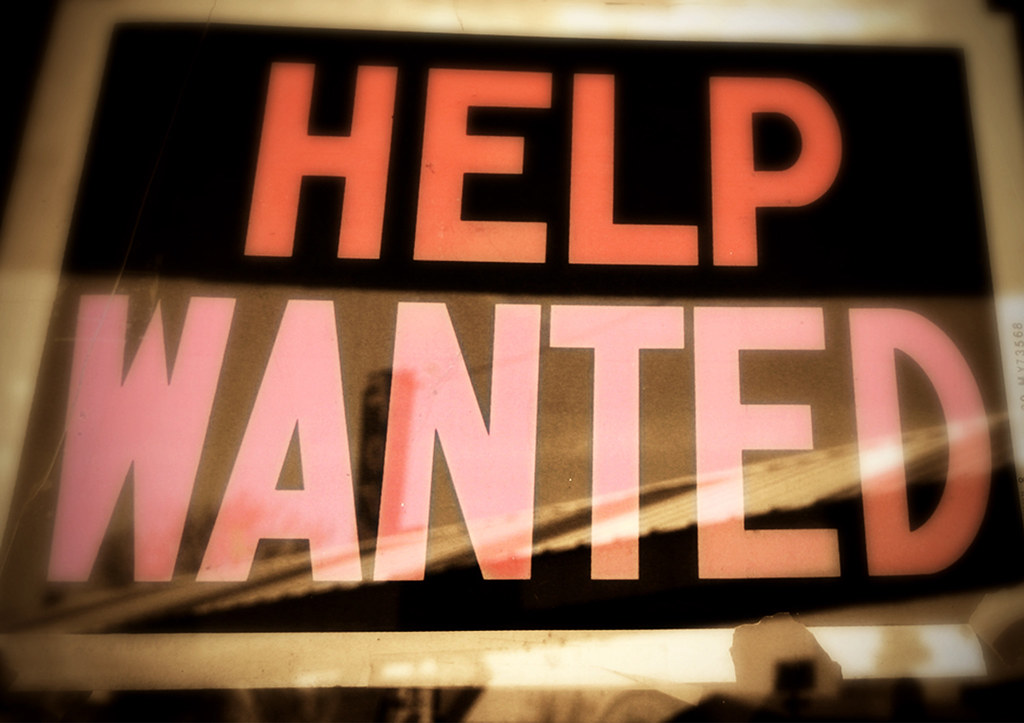The post-Covid demand for flexible working and better work life balance.
.
The ‘future of work’ is very much up for grabs in these pandemic/post-pandemic times – as this piece from the summer suggested:

Since then, things have really ratcheted up.
In the US, it’s becoming quite an issue:
The Great Resignation: Why People Are Leaving Their Jobs In Growing Numbers | npr.org
photo: flickr.com/photos/alachuacounty/8674946413
And in Devon, there is also a huge shortage of staff in retail, hospitality and other traditional sectors of the local economy:
This is being called ‘the great resignation’ – as covered in the latest edition of the Economist (paywall):
How to manage the Great Resignation
In the not-so-distant past, bosses did not have to worry as much about their workforces. Newcomers could absorb the corporate culture osmotically. Workers’ families were invisible, not constantly interrupting Zoom calls. Employees had a job, not a voice. Now firms have to “be intentional” (management-speak for thinking) about everything from the point of the office to how staff communicate with each other. Retention is the latest area to require attention. The spike in staff departures known as the Great Resignation is centred on America: a record 3% of the workforce there quit their jobs in September. But employees in other places are also footloose. Resignations explain why job-to-job moves in Britain reached a record high in the third quarter of this year…
How to manage the Great Resignation | economist.com
As does today’s Financial Times:
Making sense of the Great Resignation
Labour markets have been reshaped by the pandemic in different ways
The pandemic sparked a wave of speculation about what, on the other side, the world of work would look like. Perhaps, as in the aftermath of the Black Death, it would permanently tilt the balance of power towards labour. Or perhaps the brush with mortality would lead to millions re-evaluating their priorities, opting for a new work-life balance, aided by the spread of work-from-home arrangements. A much worse alternative was that the biggest fall in economic activity on record could, without proper monetary and fiscal support, lead to a repeat of the Great Depression, with stubbornly high joblessness and low job growth for decades.
To a certain extent, in different places to different degrees, all have come true and the future of work is not completely settled. As has been shown by an FT series published throughout this week, asking ‘where have all the workers gone?’, there is no one single experience of labour markets after the pandemic. The term Great Resignation was coined in the US, where thousands have handed in their notice in search of better remunerated or more rewarding work.
Making sense of the Great Resignation | ft.com
The problem is – especially for Devon where there is an ageing population – the resignations are happening in the care industry:
The latest New Economics Foundation’s weekly podcast looks at the issues – and makes some proposals:
THE FUTURE OF WORK
A record number of employees have quit their jobs in recent months, in what’s been dubbed the Great Resignation. Newspapers report that it’s part of post-Covid demand for flexible working and better work life balance. After last year, where up to a quarter of the UK workforce was paid not to work through the furlough scheme, are we reassessing our relationship to our jobs? How does work impact our health and sense of self? And should we improve our working conditions — or try to abolish work altogether? Ayeisha is joined by Amelia Horgan, assistant lecturer at the school of philosophy and art history, University of Essex, and author of Lost in Work.
WEEKLY ECONOMICS PODCAST: THE FUTURE OF WORK | neweconomics.org
Finally, here are a couple more proposals for the future of work:
.